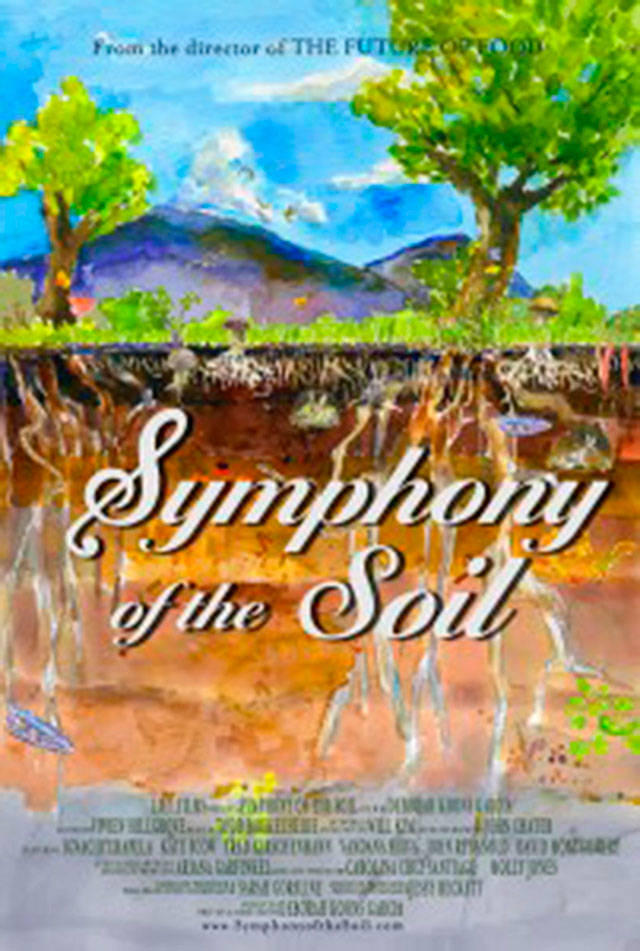Zero Waste Vashon wants all islanders to do one thing differently today to stabilize climate change: Start paying attention to what’s under your feet — the soil.
Sure, there are positive impacts that recycling or driving less can have on climate change, but composting and having healthy soil can play a role in reducing greenhouse emissions, too. Soil science is a relatively new field that is proving to be instrumental in carbon sequestration, or pulling carbon from the air. The healthier the soil, the healthier the planet.
To illustrate this point, a film entitled, “The Symphony of the Soil” will play at 6:30 p.m. Tuesday, Nov. 26, at Vashon Theatre. The film will explain the importance of soil as a living, breathing part of our natural ecosystem and what can be done to improve the health of our climate through soil science studies.
In an interview with The Beachcomber, Will Lockwood, a board member of Zero Waste who is on the compost committee, shared that the improved carbon sequestration of soil through the use of compost can happen relatively quickly, making the soil better capable of soaking up carbon pollutants in the air and producing bountiful, nutritious food.
“There are a huge number of microbes and living organisms in just a teaspoon of soil,” Lockwood said. “Just as we are still learning the importance of the gut biome in the overall health of the body, we are learning about the biome in the soil and how it can lead to a healthier planet.”
Tom Sullivan, another board member, painted a clear picture: “People really need to understand the ocean is the blood and the soil is the flesh of this planet.”
As part of a three-year project by Zero Waste in a field behind the IGA Supermarket, different substrates of compost materials were used and then carbon percentages were measured. Overall findings were an increase from 4% carbon sequestration up to 9%, a marked improvement. Less than 5% of carbon in soil results in soil that is “dead” and incapable of growing food.
Nancy O’Connor, a third board member on the compost committee for Zero Waste, said that up to 27% of the waste stream on the island consists of compostable food and yard waste.
“That waste gets transported off the island, costing King County $200,000 in fees, [and is] then sent to a compost facility just to be transported back here in bags for purchase at our local hardware stores,” O’Connor said. “The transportation alone is hard on the environment and just doesn’t make sense.”
O’Connor also shared that King County has signed a feasibility study agreement for an organics processing facility on the island after the pilot composting program at the transfer station proved islanders would participate. Seeking input from Zero Waste, the study will last four months at different locations on the island.
For members of Zero Waste’s compost committee, outstanding questions remain: Who will cover the cost of building a processing facility? What are the economics of transporting versus on-island processing? Will islanders be able to purchase compost if processed on the island? Will the compost cost less?
What is known is the importance of reducing the waste stream. This includes food scraps, which, if dumped in landfills, rots and releases methane, which accelerates the warming of the climate. Creating a circular system of reusing waste on island farms and gardens, improving soil health and reducing emissions from transport shipping trucks, are some of the primary goals of Zero Waste Vashon.
By showing the film for the second time on the island — the first was at the Land Trust Building several years ago — Sullivan hopes that one message is loud and clear: “Soil is alive,” and “is the mother of everything.”
“It is just not a step people are aware of,” O’Connor said. “Every little bit helps.”
To learn more about how to compost in your own home, visit Zero Waste’s website and join the community viewing of “The Symphony of the Soil.”



